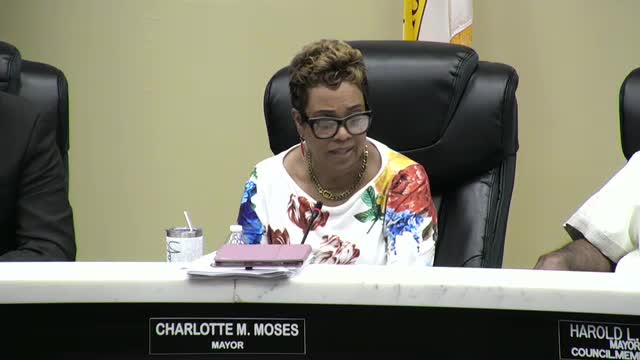City Council Approves Hybrid EDC Projects to Address Housing and Community Needs
July 29, 2025 | Port Arthur City, Jefferson County, Texas
This article was created by AI summarizing key points discussed. AI makes mistakes, so for full details and context, please refer to the video of the full meeting. Please report any errors so we can fix them. Report an error »

During a recent Port Arthur City Council meeting, significant discussions centered around the potential expansion of projects funded by the Economic Development Corporation (EDC). The council members explored the possibility of utilizing existing ballot language to facilitate new housing and community development initiatives without requiring a new vote from the public.
The meeting highlighted the council's ongoing efforts to address the community's pressing needs, particularly in affordable housing. Council members noted that past initiatives had successfully resulted in the construction of 35 homes, demonstrating the effectiveness of previous ballot measures. The council is now looking to build on this success by proposing a hybrid approach that would allow for multiple types of projects under the EDC's framework.
Council member Lewis emphasized the importance of this hybrid model, which would enable the city to pursue various projects beyond just housing. This approach aims to streamline the process, allowing the council to respond more swiftly to community demands for recreational facilities, water supply improvements, and business development initiatives. The city attorney provided legal insights, confirming that the council could indeed pursue these broader projects under the Texas Local Government Code.
Additionally, council member Everfield reiterated the necessity of this ordinance, which would empower the city to undertake projects that residents have consistently requested. By avoiding the need for separate ballot initiatives for each project, the council aims to save costs and expedite the implementation of community improvements.
The discussions underscored a proactive approach by the Port Arthur City Council to enhance local infrastructure and address the needs of its citizens. As the council prepares for the upcoming November election, they are focused on ensuring that the necessary measures are in place to facilitate these developments efficiently. The meeting concluded with a commitment to further refine the proposed ordinance, ensuring it aligns with both legal requirements and community expectations.
The meeting highlighted the council's ongoing efforts to address the community's pressing needs, particularly in affordable housing. Council members noted that past initiatives had successfully resulted in the construction of 35 homes, demonstrating the effectiveness of previous ballot measures. The council is now looking to build on this success by proposing a hybrid approach that would allow for multiple types of projects under the EDC's framework.
Council member Lewis emphasized the importance of this hybrid model, which would enable the city to pursue various projects beyond just housing. This approach aims to streamline the process, allowing the council to respond more swiftly to community demands for recreational facilities, water supply improvements, and business development initiatives. The city attorney provided legal insights, confirming that the council could indeed pursue these broader projects under the Texas Local Government Code.
Additionally, council member Everfield reiterated the necessity of this ordinance, which would empower the city to undertake projects that residents have consistently requested. By avoiding the need for separate ballot initiatives for each project, the council aims to save costs and expedite the implementation of community improvements.
The discussions underscored a proactive approach by the Port Arthur City Council to enhance local infrastructure and address the needs of its citizens. As the council prepares for the upcoming November election, they are focused on ensuring that the necessary measures are in place to facilitate these developments efficiently. The meeting concluded with a commitment to further refine the proposed ordinance, ensuring it aligns with both legal requirements and community expectations.
View full meeting
This article is based on a recent meeting—watch the full video and explore the complete transcript for deeper insights into the discussion.
View full meeting
